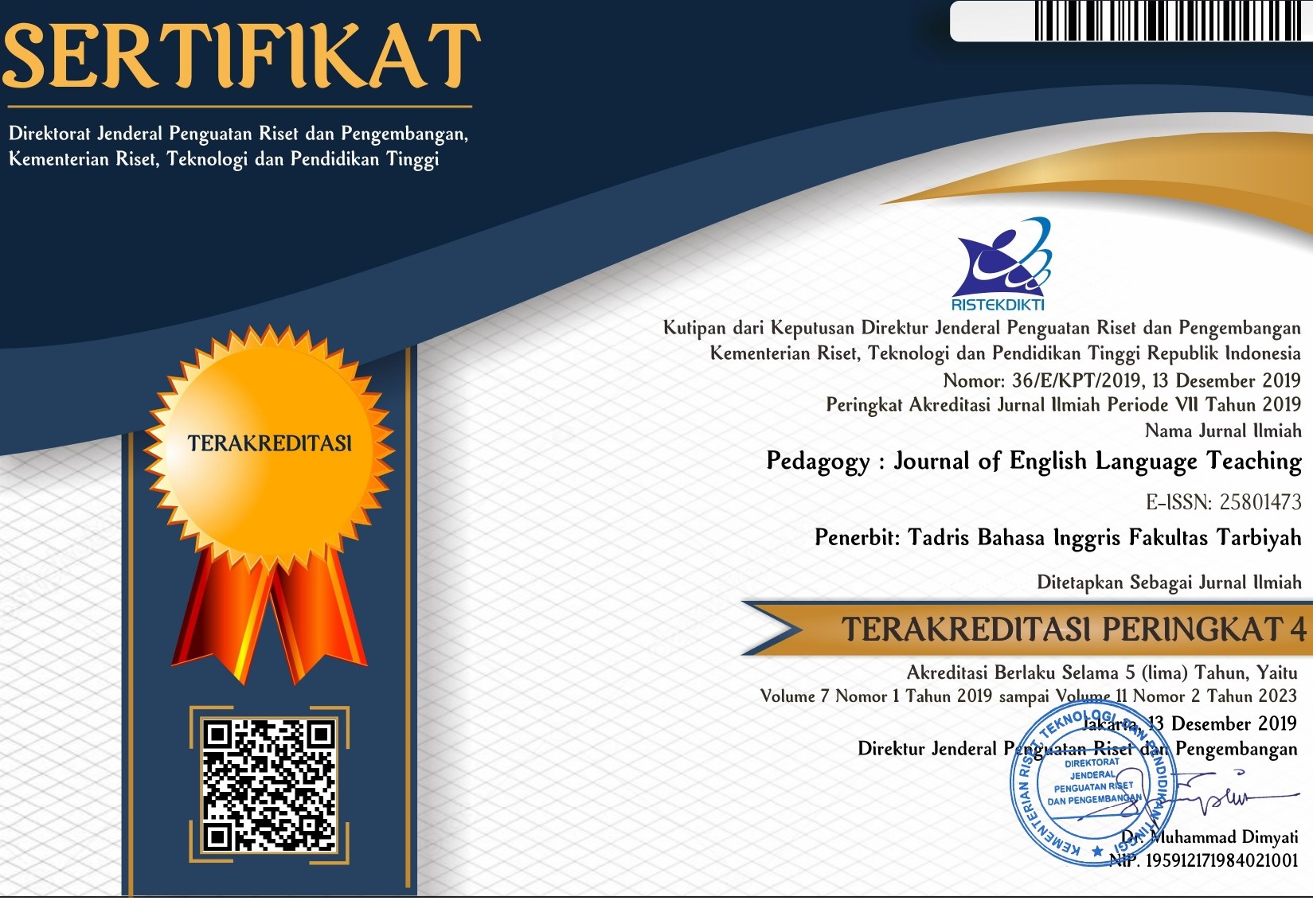The Effect of Massively Multiplayer Online Role-Playing Games (MMORPG) Vocabulary on Students’ Willingness to Communicate: A Narrative Inquiry
DOI:
https://doi.org/10.32332/joelt.v11i2.7742Keywords:
EFL, Game, MMORPG, Vocabulary, Willingness to communicateAbstract
Learning is not only done in the classroom but also outside the classroom through game media. This study focuses on the effect of vocabulary knowledge from massively multiplayer online role-playing games on students' willingness to communicate. The subjects of this research are three EFL learners who play MMORPG games. This study uses a biographical narrative inquiry method and collects data through semi-structured interviews and artefacts. EFL learners were assigned to share their experiences playing MMORPGs related to vocabulary knowledge and the desire to communicate. The data is analysed using thematic analysis. The findings highlight the positive impact of vocabulary knowledge on participants' self-confidence and pronunciation skills. A solid grasp of game-related vocabulary increases participants' self-confidence, making them more comfortable engaging in conversations and less afraid of making mistakes. It also improves pronunciation skills, as participants better understand word pronunciation through in-game interactions. Through collaboration among teachers, institutions, and parents, using MMORPGs as a learning tool is expected to provide maximum benefits for students in improving their English communication skills.
















